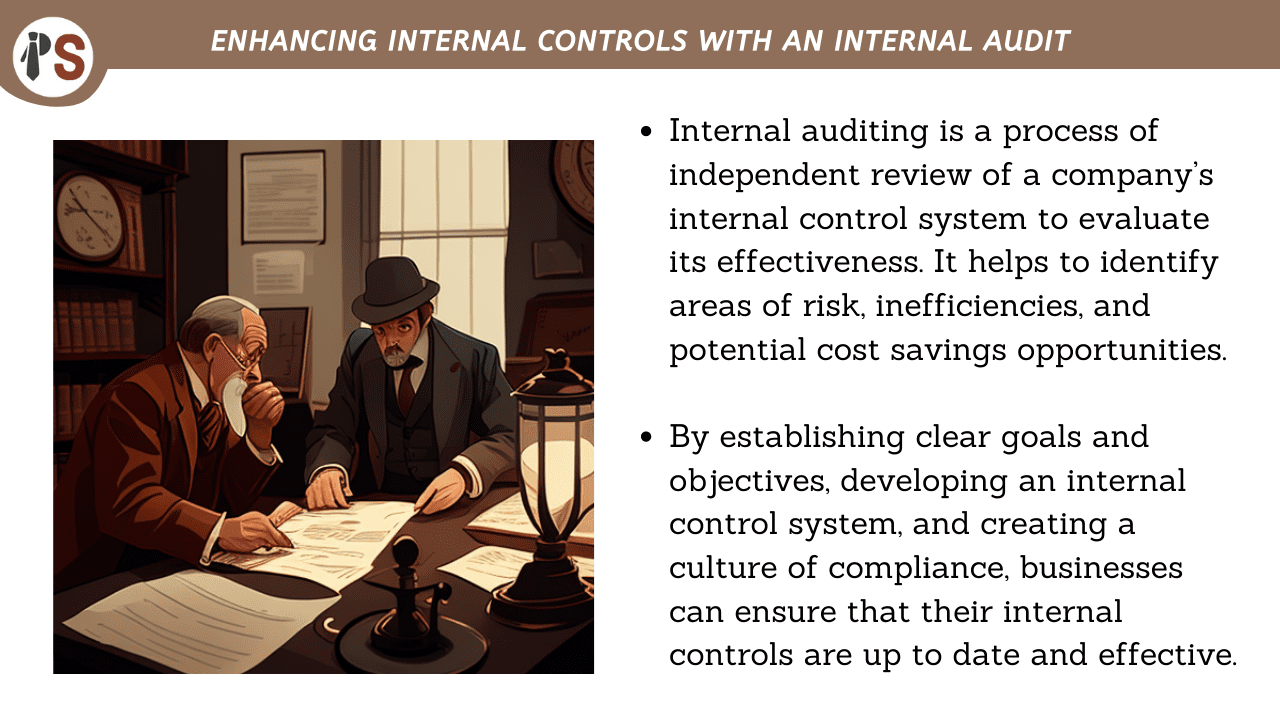
Internal controls are an important part of any business. They help to ensure that the business is working efficiently, that assets are safeguarded, and that accurate financial reporting is being done. Having an internal audit can help to improve these internal controls by identifying areas that need improvement and making recommendations to improve them.
An internal audit is an independent review of a company’s internal control system. It is conducted by an auditor who is external to the company, such as an accountant or consultant. The goal of the internal audit is to evaluate the effectiveness of the company's internal controls and identify any areas that need improvement. The audit is conducted in accordance with Generally Accepted Auditing Standards (GAAS).
Internal auditing can provide several benefits to a business. For example, it can help to:
Identify areas of risk and inefficiencies and make recommendations for improvement
Ensure that the company is in compliance with laws and regulations
Provide assurance that financial statements are accurate and reliable
Identify potential cost savings opportunities
Improve communication between departments
Establish Clear Goals & Objectives: The first step in improving internal controls with an internal audit is to establish clear goals and objectives. This will help the auditor to focus on the areas that need to be reviewed and ensure that the audit is conducted in an effective and efficient manner.
Develop an Internal Control System: Once the goals and objectives are established, the next step is to develop an internal control system. This system should be designed to ensure that the company’s assets are safeguarded and that accurate financial reporting is being done.
Identify Weaknesses & Make Recommendations: Once the internal control system is in place, the auditor can then identify any weaknesses and make recommendations for improvement. The auditor should also review the system periodically to ensure that it is functioning properly.
Create a Culture of Compliance: Finally, it is important to create a culture of compliance within the company. This means that everyone should understand the importance of following the internal control system and should be aware of any changes or updates.
Internal auditing is an important part of any business and can help to improve internal controls. By establishing clear goals and objectives, developing an internal control system, and creating a culture of compliance, businesses can ensure that their internal controls are up to date and effective.
At Professional Saathi, we offer a range of business consultancy services that help businesses improve their performance, achieve growth, and overcome challenges.
Copyright 2026 © Created By KTPG PROFESSIONAL SAATHI CORPORATE CONSULTANT PRIVATE LIMITED, All Rights Reserved.
Leave Your Comment